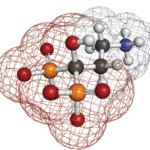The increased mortality risk for patients with rheumatoid arthritis (RA) compared with the general population may be attributable to altered immunity, medication side effects, systemic effects of inflammation, worsened physical function, accumulation of co-morbidities and excessive unhealthy behaviors, such as smoking. The contribution of metabolic and inflammatory factors (such as obesity) to RA etiology and outcomes has received increased attention recently. Several studies have investigated the effect of body mass index (BMI) on mortality in patients with RA. In RA cohorts, obesity has been associated with 34–67% decreased mortality compared with that in patients with a normal BMI.
Sparks et al set out to investigate whether weight change during the early RA period is associated with subsequent mortality and to evaluate whether there is an RA-specific effect. They investigated weight change during the early RA period, because this is the window of time during which weight change is most likely to be related to RA-specific processes.
Methods: The researchers identified patients with incident RA during the Nurses’ Health Study (1976–2016) and created a comparison cohort by matching each RA patient with up to 10 non-RA comparators by age and year of the RA diagnosis (index date). To capture weight change around the early RA period (“peri-RA/index”), they used weight measurements collected two to four years before and two to four years after the index date. They used Cox proportional hazard regression analysis to estimate hazard ratios (HRs) for mortality according to peri-RA/index weight change categories, separately in each cohort and in the combined cohorts, evaluating for an RA-specific effect.
Results: Among 121,701 women in the NHS, 902 patients with incident RA were identified and matched to 7,884 non-RA comparators. In the RA cohort, 371 deaths occurred during a mean follow-up of 17.0 years after the early RA period, and 2,303 deaths occurred in the comparison cohort during a mean follow-up of 18.4 years. Weight loss of more 30 lbs. during the peri-RA period had an HR for mortality of 2.78 (95% confidence interval [95% CI] 1.58–4.89) compared with stable weight; results in the comparison cohort were similar (HR 2.16, 95% CI 1.61–2.88). A weight gain of more than 30 lbs. had no association with mortality in patients with RA (HR 1.45, 95% CI 0.69–3.07) or comparators (HR 1.19, 95% CI 0.89–1.59). For mortality, there was no statistically significant interaction between RA/comparator status and weight change category (P=0.68).
Conclusion: Sparks et al observed that severe weight loss during the early RA period was associated with a subsequent increased mortality risk both for women with and without RA. Compared with stable weight during the early RA period, weight gain was not associated with subsequent mortality risk for either RA patients or matched comparators.
These results emphasize the need to consider a non-RA population when investigating the relationship between an exposure and an outcome that is not specifically related to the disease population of interest.
These results also extend prior observations by including non-RA comparators and finding no protective association between weight gain and mortality, providing evidence against an RA-specific obesity paradox for mortality in RA.
Excerpted and adapted from:
Sparks JA, Chang S-C, Nguyen U-S, et al. Weight change during the early rheumatoid arthritis period and risk of subsequent mortality in women with rheumatoid arthritis and matched comparators. Arthritis Rheumatol. 2018 Jan;70(1):18–29.


